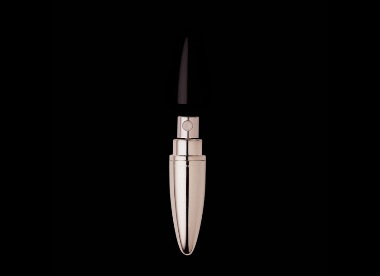

Perfume is something most women adore, most women wear, if not all the time, at least on special occasions. 
The fragrance of many perfumes evoke emotions, sparks memories, is able to change moods. Perfume has been used for thousands of years by ancient civilizations including Egyptians, Persians, Greeks and Romans.
Perfume was held in high esteem in Biblical times and there is frequent mention of fragrance in the Bible. In the New Testament, the three wise men carried gifts of gold, frankincense and myrrh to the baby Jesus.
The word Perfume comes from the Latin words "Per", meaning 'through', and "fumus" meaning 'smoke'. According to many historians of word origins, the word 'perfume' did not originally denote the delicate scent of a flower or fragrant oils, but rather as an "odoriferous smoke emitted from a burning substance". This substance may of been incense or herbs, burnt for medicinal purposes. As time passed the word 'perfume' was used to describe the agreeable scent or fragrance such as those produced by flowers or essential oils.
As well as exploring the history of perfume and fragrances we aim to unlock some of the mysteries of the world of perfume and fragrances by describing fragrance notes, how to test and apply perfume and the art of making your fragrance last all day long by using a simple, but effective, technique called 'Layering'.
x^ Top | Home | Egyptian Times »
Egypt | Persia | Greece | Rome | Orient | France | Versailles | 1800 - 1900 | Time Line | Perfume Notes | Families | Definitions | Layerin | Perfume Tips | Arabic

Development | Ra2Directory+ | Multimedia | Photography | Design
( Copyright © 2000/2025 Ra2D ™ All Rights Reserved. )